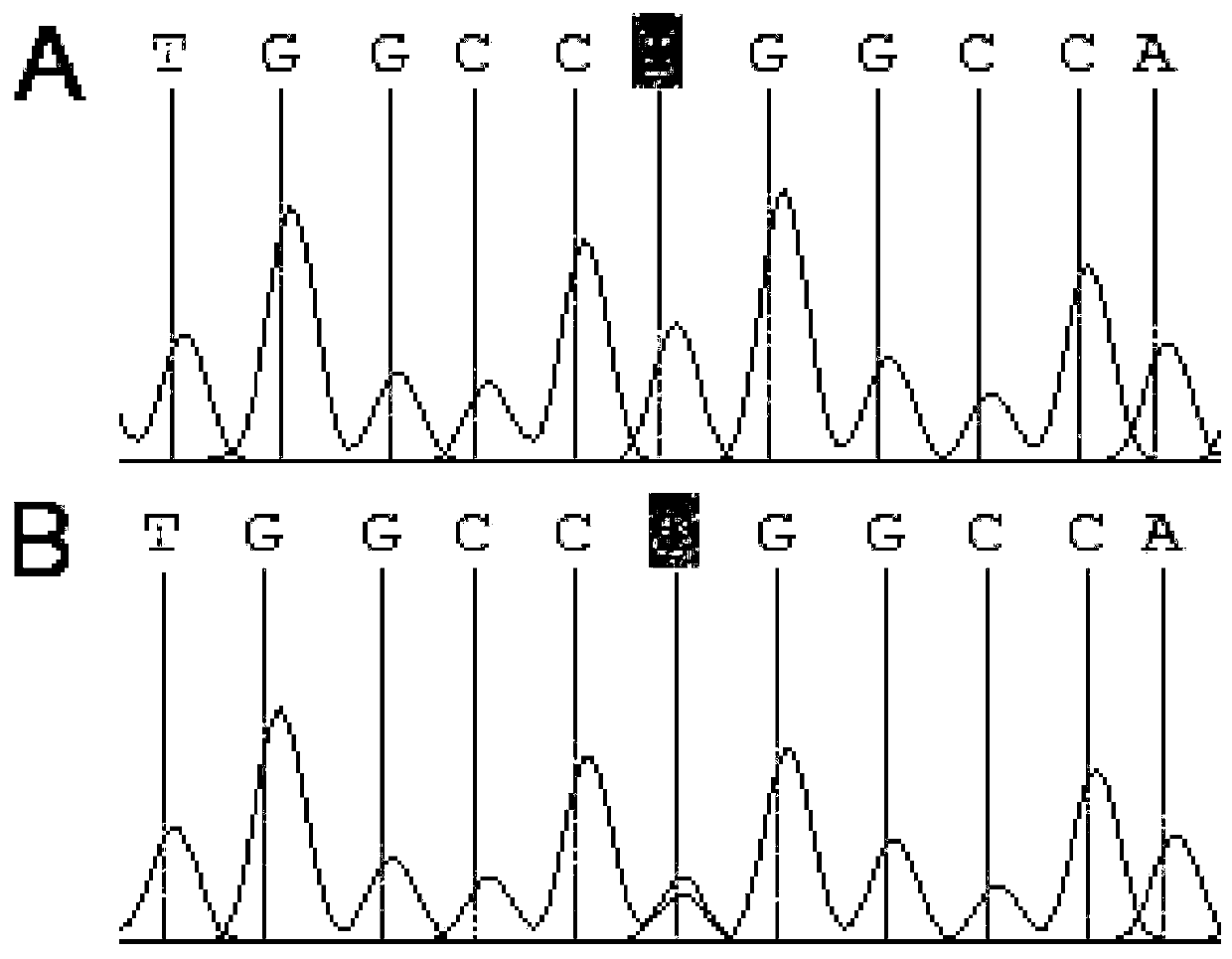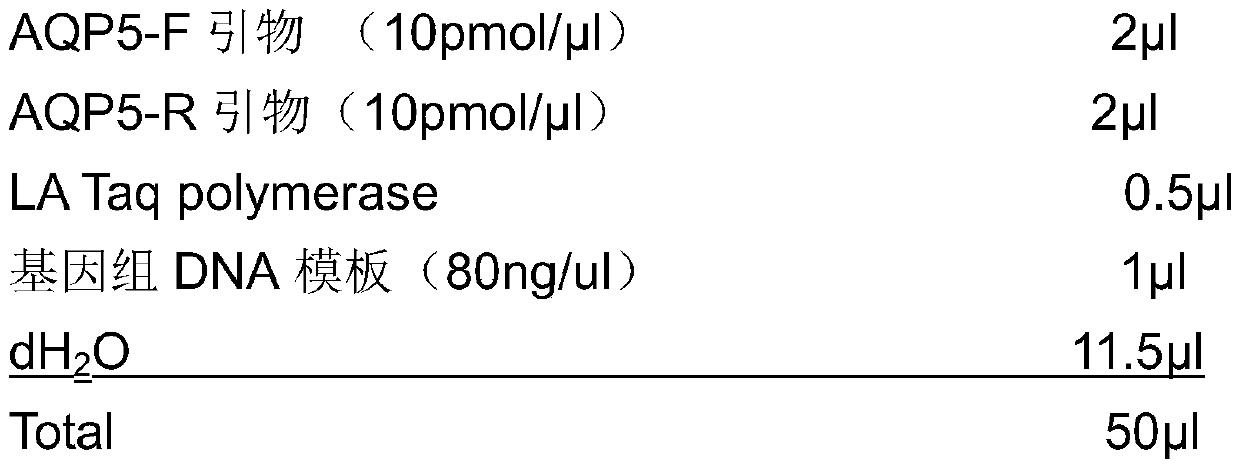Application of aqp5 gene in preparation and detection of congenital cataract products
A congenital cataract, genetic technology, applied in the direction of biochemical equipment and methods, microbial measurement/testing, etc., can solve problems such as expensive surgery, easy recurrence, visual impact, etc.
- Summary
- Abstract
- Description
- Claims
- Application Information
AI Technical Summary
Problems solved by technology
Method used
Image
Examples
Embodiment 1
[0029] Example 1: Screening the mutation site of AQP5 gene from a family with congenital cataract
[0030] 1. Extraction of peripheral blood genomic DNA:
[0031] In compliance with the relevant national policies and regulations, and on the basis of the consent of the sampling subjects, draw 2-5ml of peripheral venous blood from family members, put it into an EDTA anticoagulant tube, and store it at -80°C for later use; the frozen EDTA anticoagulated blood is thawed at room temperature Finally, take 500 μL and put it in a centrifuge tube, add an equal volume of TE (pH 8.0), mix well, centrifuge at 10000 rpm for 10 minutes at 4°C, and discard the supernatant.
[0032] Add 180 μL TE, 20 μL SDS (10%), and 8 μL proteinase K (10 mg / ml) to mix well, and place in a 37° C. water bath overnight. Remove the sample from the water bath and briefly centrifuge to pellet the sample. Add an equal volume of Tris-saturated phenol (about 300 μL) to the reaction tube, mix thoroughly, centrifuge...
PUM
 Login to View More
Login to View More Abstract
Description
Claims
Application Information
 Login to View More
Login to View More - R&D
- Intellectual Property
- Life Sciences
- Materials
- Tech Scout
- Unparalleled Data Quality
- Higher Quality Content
- 60% Fewer Hallucinations
Browse by: Latest US Patents, China's latest patents, Technical Efficacy Thesaurus, Application Domain, Technology Topic, Popular Technical Reports.
© 2025 PatSnap. All rights reserved.Legal|Privacy policy|Modern Slavery Act Transparency Statement|Sitemap|About US| Contact US: help@patsnap.com



